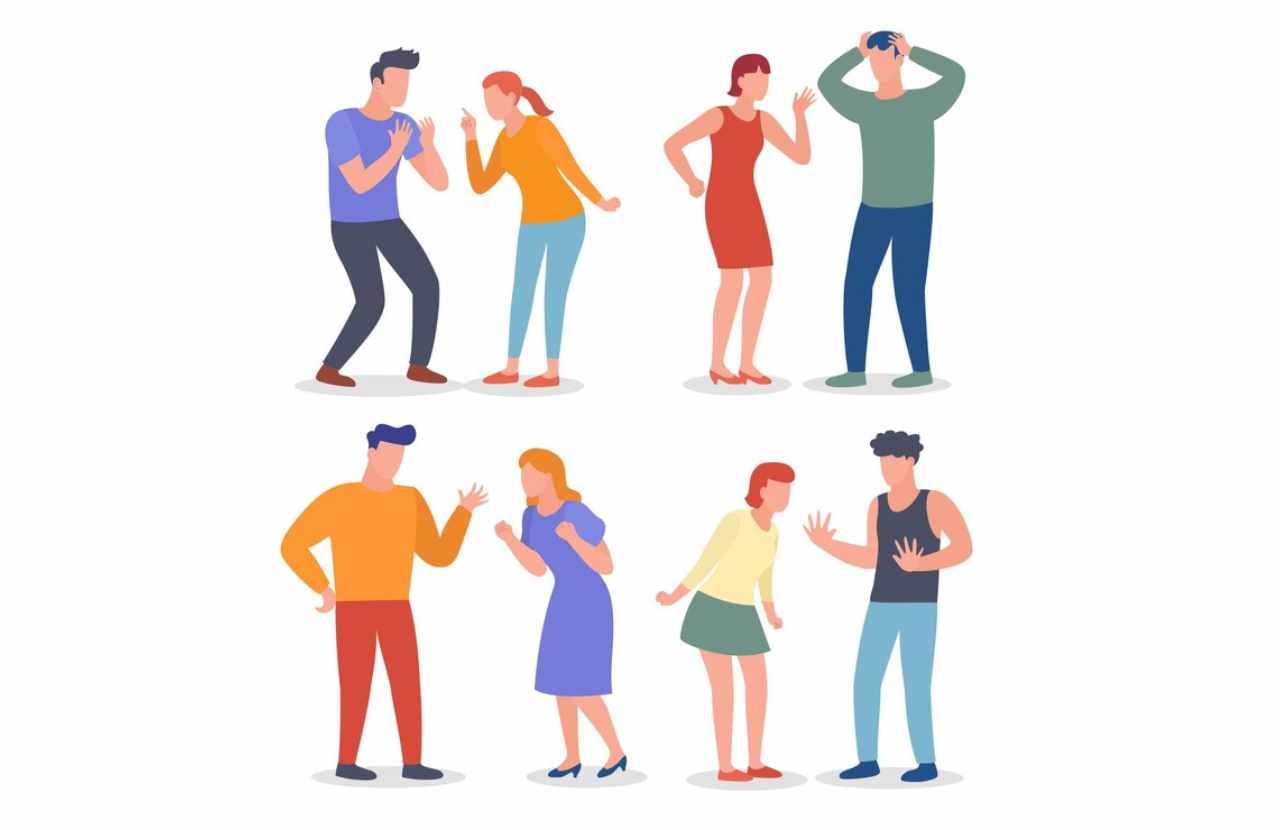Intimacy is a crucial aspect of any romantic relationship, and physical touch plays a significant role in building and sustaining that connection. However, touching can evoke unexpected and puzzling emotions for some individuals, including those in seemingly loving relationships. You are not alone if you find yourself getting irritated when your boyfriend touches you. In this blog post, we will explore why you get irritated when your boyfriend touches you!
What is Emotional Triggers?
To comprehend why physical touch might trigger irritation, it’s essential to delve into emotional triggers. Past experiences, traumas, and even societal conditioning can create subconscious reactions to certain stimuli, including touch. Reflecting on your personal history and past relationships can be a crucial first step in understanding why you might feel irritated when your boyfriend reaches out.
Why do you Get Irritated When your Boyfriend Touches You?
Feeling irritation or discomfort when your boyfriend touches you can be a complex and individual experience, influenced by various factors. It’s important to note that emotions are subjective, and what one person feels may differ from another. Here are several potential reasons why you might be experiencing irritation in such situations:
Personal Boundaries
Your boundaries may not align with the level of physical contact your boyfriend engages in. Everyone has different comfort levels when it comes to touch, and it’s crucial to communicate these boundaries openly and honestly in a relationship.
Communication Gap
If you haven’t communicated your feelings about physical touch or specific actions that bother you, your boyfriend may be unaware of your discomfort. Open and honest communication is key to addressing issues and finding a compromise that works for both of you.
Stress and Anxiety
Personal stressors or anxiety can affect your overall mood and tolerance for physical contact. If you’re dealing with stressors in other aspects of your life, it might influence your emotional state in the context of physical touch.
Past Trauma
Previous negative experiences or trauma, whether related to relationships or not, can significantly impact how one perceives and reacts to physical touch. It might be helpful to reflect on past experiences that could influence your feelings.
Mismatched Love Languages
People express and receive love in different ways. If your primary love language differs from your boyfriend’s, it may lead to a disconnect. Understanding each other’s love languages can foster a more harmonious relationship.
Hormonal Changes
Changes in hormonal levels, such as those associated with the menstrual cycle, can affect mood and sensitivity. Being mindful of these natural fluctuations can help both partners navigate heightened sensitivity.
Unresolved Issues
Unresolved conflicts or issues within the relationship may manifest as irritability. Addressing any underlying concerns and working together to find resolutions is essential.
Personal Preferences
People have varying preferences regarding touch—some enjoy frequent physical contact, while others prefer more personal space. Understanding and respecting each other’s preferences is vital for a healthy relationship.
Cultural or Religious Factors
Cultural or religious backgrounds can play a role in shaping attitudes towards physical touch. Recognizing and respecting each other’s cultural or religious beliefs is essential to avoid misunderstandings.
How can you understand the irritation that arises when your Boyfriend Touches You?
Understanding and addressing feelings of irritation when your boyfriend touches you requires introspection, communication, and potentially making adjustments in your relationship. Here are some steps to help you navigate this:
Self-reflection
Take some time to reflect on your feelings. Try to identify specific actions or types of touch that trigger irritation. Consider whether the irritation is related to something specific in your life, stressors, or past experiences.
Open communication
Choose a calm and private setting to discuss your feelings with your boyfriend. Be honest and open about what you’re experiencing. Use “I” statements to express your feelings without blaming him. For example, say, “I feel irritated when…” instead of “You always make me feel irritated.”
Express your needs
Communicate your boundaries and tell your boyfriend what types of touch are uncomfortable for you. Discuss alternative ways to express affection that may be more comfortable for both of you.
Listen actively
Encourage your boyfriend to share his perspective on the situation. Be open to understanding his feelings and experiences. Make an effort to listen without judgment and validate his emotions.
Seek compromise
Work together to find a middle ground that respects both of your needs. This might involve finding alternative ways to express affection or adjusting the intensity and frequency of physical touch.
Final Words
In conclusion, the experience of irritation when your boyfriend touches you can be rooted in various factors, ranging from personal boundaries and communication styles to underlying emotional or psychological triggers. Understanding and addressing these feelings requires open and honest communication with your partner and self-reflection to identify the specific causes of discomfort. It’s essential to approach the situation with empathy and a willingness to work collaboratively, fostering a deeper understanding between both partners. Seeking support from each other and possibly from a relationship counsellor can contribute to building a stronger connection and finding constructive solutions to enhance mutual comfort and intimacy.

